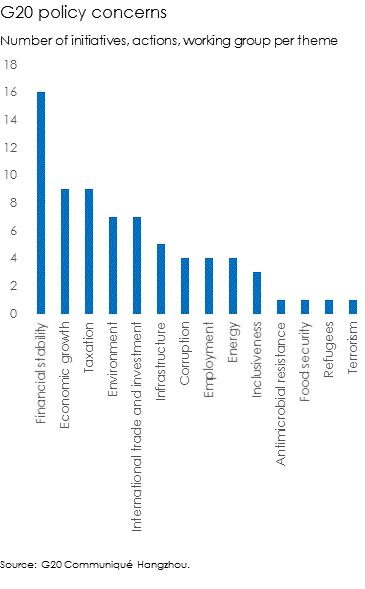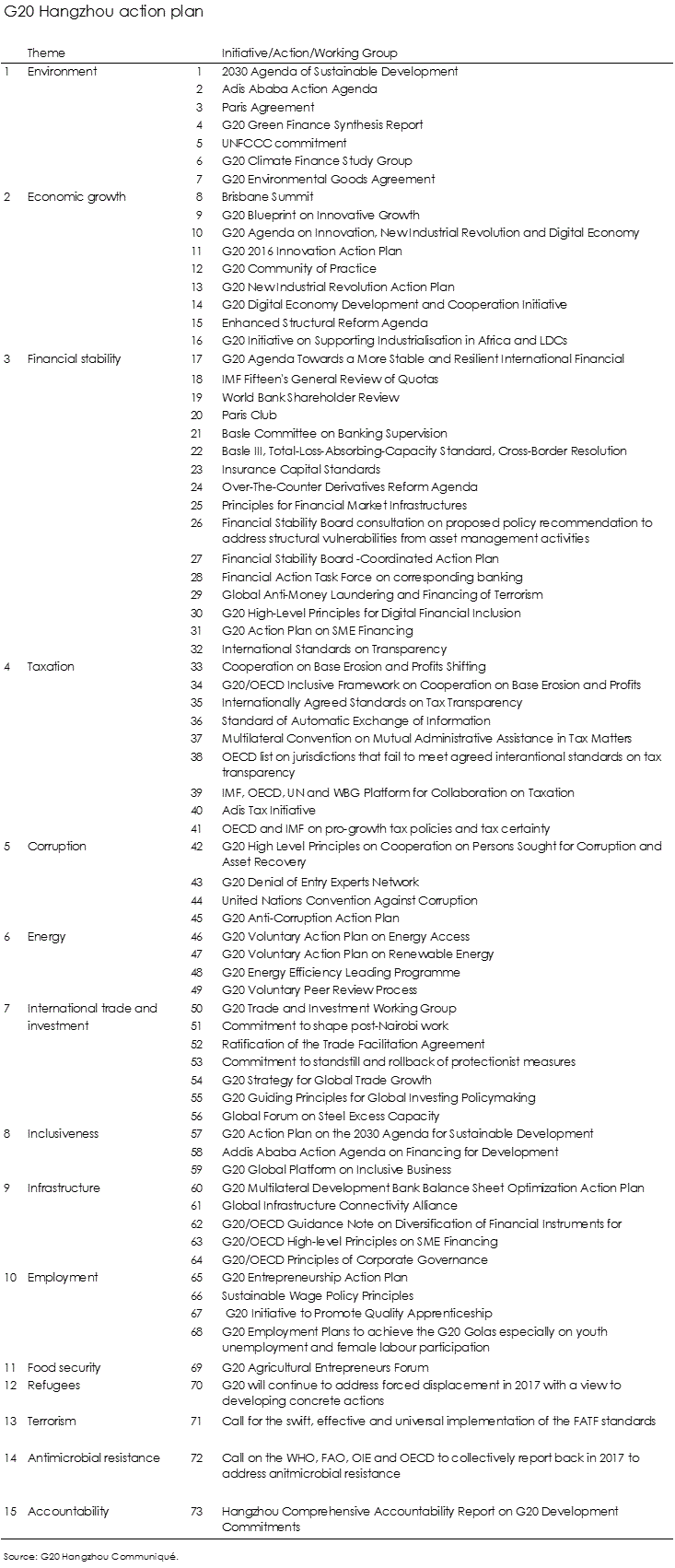G20 Hangzhou Summmit
5 September 2016
The Hangzhou Summit of 4-5 September produced a rather long action plan but few concrete measures. It missed addressing in earnest important issues like the refugee crisis and international security. The Communiqué is remarkable for the number of initiatives, actions and working groups it endorses and commits to. There are 15 action themes and 73 measures. It may convey a lack of focus. Less likely, it may simply be a reflection of the complexity of managing the global economy.
China made little of its G20 Presidency. Rather than building an agenda on matters important to itself with global implications, it defaulted to the broad based coverage of many of its predecessors. The variety of initiatives suggests that the G20 at heads of state level continues to struggle to adopt a meaningful mission. It also risks simply replicating what is being advanced at ministerial levels.
The number of measures shows that rather than prioritising on desirable policy action, the G20 is simply pushing along a list of policies most already existing. Thankfully, the G20 adopted in Hangzhou an accountability measure supposedly to keep track and report on the implementation of the various commitments.
The Communiqué addresses many ills of the world. The order of which may offer a hint as to the actual priorities of the G20. The environment and economic growth feature high. Financial stability and taxation receive most with 16 and 9 actions (together with economic growth), respectively. Inclusiveness, while part of the headline commitments, ranks low in the Communiqué and attracts only 3 actions, reflecting possibly that the G20 is out of touch with mounting popular concerns. Refugees, ranking even lower and equipped with only 1 action, also seems surprising in light of the challenges currently facing immigrant and emigrant nations and the need for significant coordinated action. Terrorism with only 1 action, one could add measures on financing terrorism, also appears a bit marginalised.
The next G20 Summit then under Germany's Presidency may offer little relief. Due to the scheduled general election in Germany, the next G20 Summit will already be held in early July. It confronts the same problem as Mexico's G20 Presidency of offering too little time.
Host countries should build on their comparative advantages. This may offer greater focus and different policy perspectives. For Germany, global imbalances, an aging population and the refugee crisis come to mind. For the 2018 G20 Argentina Presidency, improving the debt restructuring process should be high on that agenda.
The G20 remains an important forum. However, to be effective it needs to come up with actual deliverables and not merely summarising existing policy initiatives. At the same time, it must convey that it is responding to immediate needs where necessary. Nothing seems more urgent at present than to address the refugee crisis that requires both solidarity and financial resources. Nothing illustrates better where international cooperation is so essential but so spectacularly failed. The refugee crisis was addressed only in paragraph 44 out of 48 of the Communiqué. The G20 may need to reconsider its current priorities.

